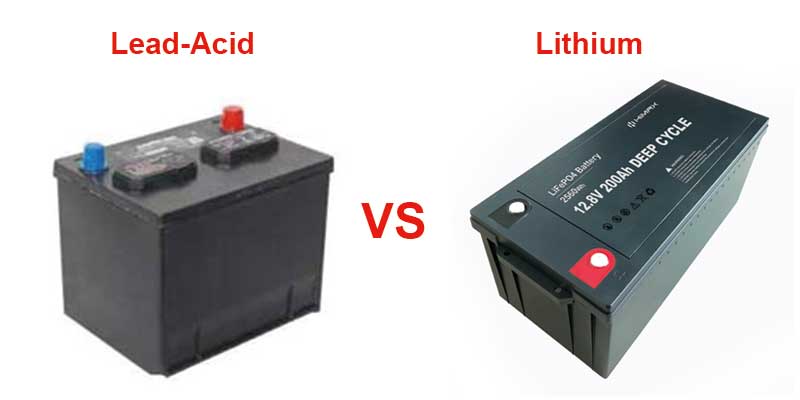Determining whether lithium batteries or lead-acid batteries are better depends on various factors, including the specific application, performance requirements, budget constraints, and environmental considerations.
- Energy Density: Lithium batteries typically have a higher energy density compared to lead-acid batteries. This means they can store more energy per unit of volume or weight, making them more compact and lighter for the same energy capacity.
- Cycle Life: Lithium batteries generally have a longer cycle life compared to lead-acid batteries. They can withstand a higher number of charge-discharge cycles before experiencing significant capacity degradation. Lithium batteries can often exceed several thousand cycles, especially when managed properly.
- Depth of Discharge: Lithium batteries can typically be discharged to a lower state of charge without causing damage compared to lead-acid batteries. This makes lithium batteries more suitable for applications requiring deep cycling, such as renewable energy storage systems.
- Maintenance: Lead-acid batteries, particularly flooded lead-acid batteries, require regular maintenance such as checking electrolyte levels and equalizing charges. Sealed lead-acid batteries (AGM, Gel) require less maintenance but may still need periodic monitoring. Lithium batteries are virtually maintenance-free.
- Cost: Initially, lead-acid batteries may have a lower upfront cost compared to lithium batteries. However, when considering the total cost of ownership over the battery’s lifespan, including factors like cycle life, maintenance, and energy efficiency, lithium batteries may offer better value in the long run.
- Temperature Sensitivity: Lithium batteries generally perform better across a wider range of temperatures compared to lead-acid batteries, which can be sensitive to temperature extremes.
- Environmental Impact: Lithium batteries have a smaller environmental footprint compared to lead-acid batteries, primarily due to their higher energy efficiency, longer lifespan, and lower maintenance requirements. However, proper disposal and recycling of lithium batteries are essential to mitigate environmental impact.
In summary, if you prioritize factors such as high energy density, long cycle life, deep cycling capabilities, and minimal maintenance, lithium batteries may be the better choice. However, if upfront cost and simplicity are more critical considerations, lead-acid batteries could be suitable for certain applications. It’s essential to assess your specific requirements and consult with experts to determine the most appropriate battery technology for your needs.


